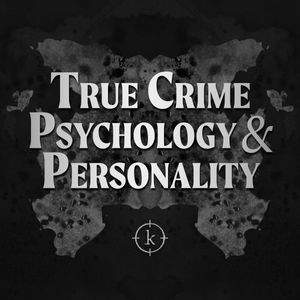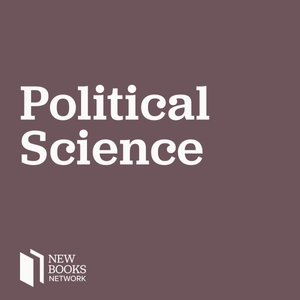
Maria Dimova-Cookson, "Rethinking Positive and Negative Liberty" (Routledge, 2019)
01/20/20 • 41 min
Previous Episode

Magnus Nordenman, "The New Battle for the Atlantic: Emerging Naval Competition with Russia in the Far North" (Naval Institute Press, 2019)
In The New Battle for the Atlantic: Emerging Naval Competition with Russia in the Far North (Naval Institute Press, 2019), Magnus Nordenman explores the emerging competition between the United States and its NATO allies and the resurgent Russian navy in the North Atlantic. This maritime region played a key role in the two world wars and the Cold War, serving as the strategic link between the United States and Europe that enabled the flow of reinforcements and supplies to the European Allies. Nordenman shows that while a conflict in Europe has never been won in the North Atlantic, it surely could have been lost there. With Vladimir Putin’s Russia threatening the peace in Europe following the annexation of Crimea in 2014, the North Atlantic and other maritime domains around Europe are once again vitally important. But this battle will in many ways be different, Nordenman demonstrates, due to an overstretched U.S. Navy, the rise of disruptive technologies, a beleaguered NATO that woke up to the Russian challenge unprepared for high-end warfighting in the maritime domain, and a Russia commanding a smaller, but more sophisticated, navy equipped with long-range cruise missiles. Nordenman also provides a set of recommendations for what the United States and NATO must do now in order to secure the North Atlantic in this new age of great power competition. Beth Windisch is a national security practitioner. You can tweet her @bethwindisch. Learn more about your ad choices. Visit megaphone.fm/adchoices Support our show by becoming a premium member! https://newbooksnetwork.supportingcast.fm/political-science
Next Episode

James M. Banner, Jr., "Presidential Misconduct: From George Washington to Today" (The New Press, 2019)
What standard should be used to assess presidential misconduct during the Trump presidency? How should the public, press, Congress, and bureaucracy resist and punish executive misconduct? Presidential Misconduct: From George Washington to Today (The New Press, 2019) insists we must look back to look forward. The book provides a comprehensive study of American presidents' misconduct and their response to charges against them. The book provides a unique context by which to understand and evaluate the impeachment of Donald Trump. The origins of the book are unique. During the 1974 Nixon impeachment hearings, committee leaders ask a group of historians to catalogue presidential misconduct – in 8 weeks. This updated edition provides case studies through the presidency of Barack Obama as well as an excellent introduction by James M. Banner, Jr. (one of the original authors of the 1974 study who also provides chapters on Jefferson, Madison, and Monroe). Jeremi Suri’s analysis of Ronald Reagan’s presidency (EPA, HUD, illegal lobbying, Pentagon bribes and kickbacks, Savings and Loan, Iran-Contra) concludes that Reagan’s personal integrity contrasts with the managerial negligence and deregulation that “encouraged corruption and law-breaking.” Although Reagan did not profit personally, his penchant for deregulation and dislike of confrontation created an environment which made possible crimes committed by others. In her chapter on Bill Clinton, Kathryn Cramer Brownell highlights how changes in television and cable (the twenty-four hour news) impacted the presidency. Through an analysis of Travelgate, Whitewater, 1996 Campaign Finance Violations, and Monica Lewinsky, Brownell concludes that the “line between public and private life, as well as the public’s distinction between the two, disappeared during the Clinton administration.” During the podcast, Brownell expands on complex issues of gender and the separation of public and private. The podcast concludes with thoughts on how a historical review of presidential misconduct informs our understanding of the impeachment of President Trump and the impact of public vigilance in American politics. Susan Liebell is associate professor of political science at Saint Joseph’s University in Philadelphia. She is the author of Democracy, Intelligent Design, and Evolution: Science for Citizenship (Routledge, 2013). Learn more about your ad choices. Visit megaphone.fm/adchoices Support our show by becoming a premium member! https://newbooksnetwork.supportingcast.fm/political-science
If you like this episode you’ll love
Episode Comments
Generate a badge
Get a badge for your website that links back to this episode
<a href="https://goodpods.com/podcasts/new-books-in-political-science-10564/maria-dimova-cookson-rethinking-positive-and-negative-liberty-routledg-15931464"> <img src="https://storage.googleapis.com/goodpods-images-bucket/badges/generic-badge-1.svg" alt="listen to maria dimova-cookson, "rethinking positive and negative liberty" (routledge, 2019) on goodpods" style="width: 225px" /> </a>
Copy




